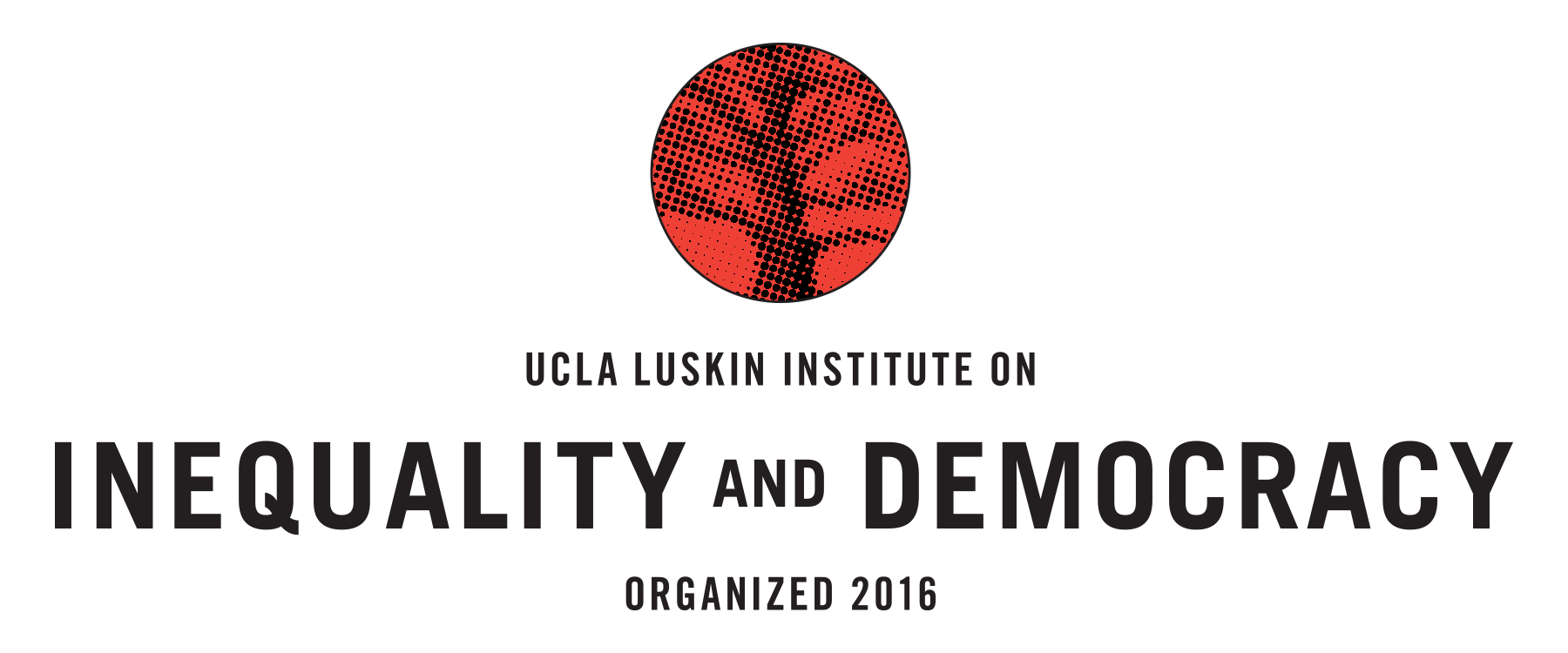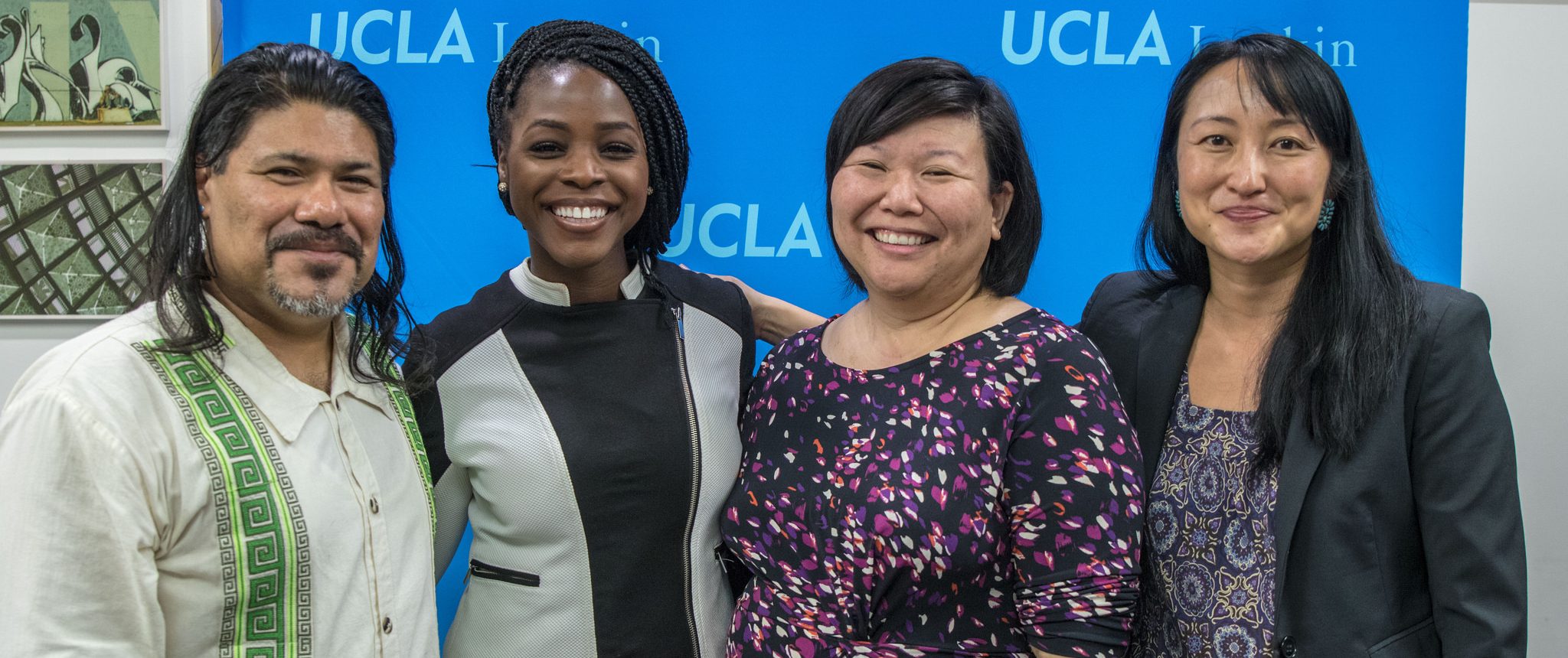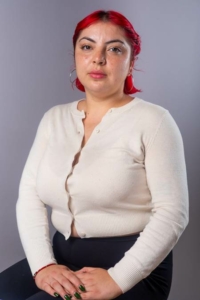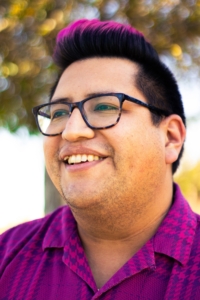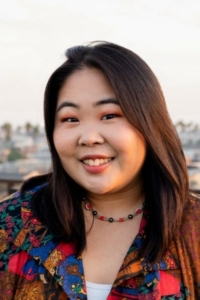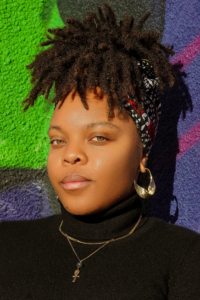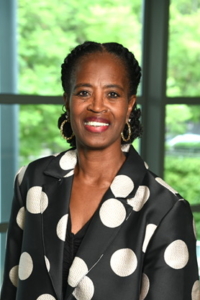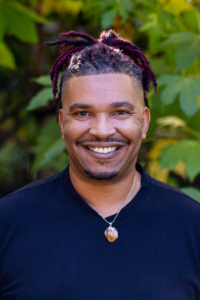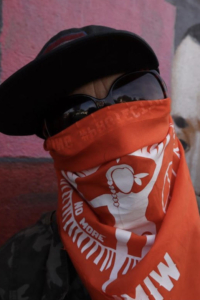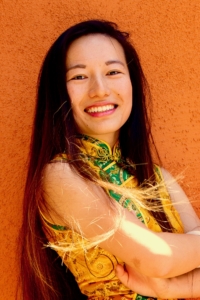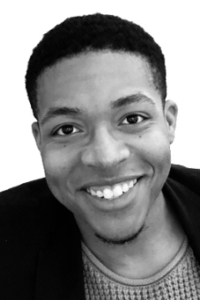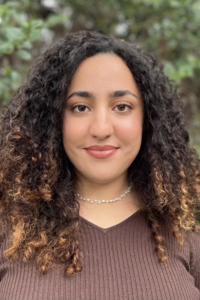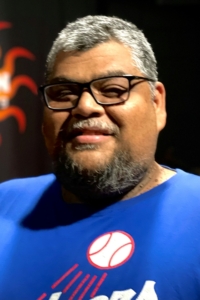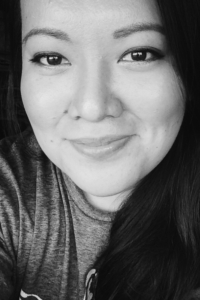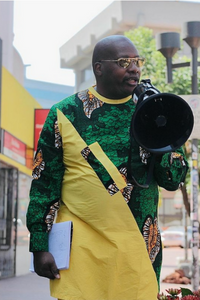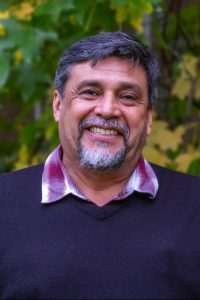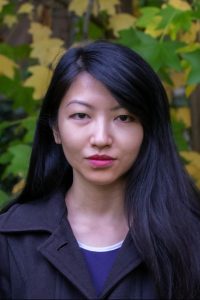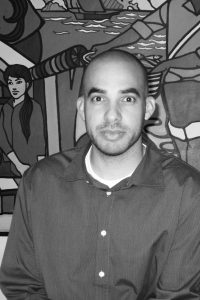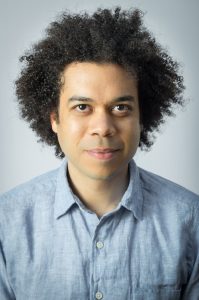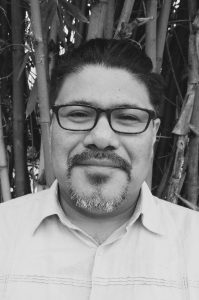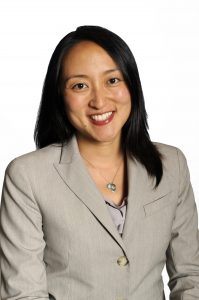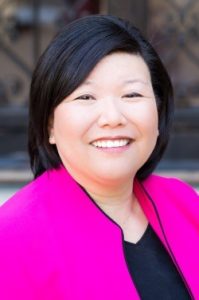ABOUT THE PROGRAM
The UCLA Activist-in-Residence program seeks to strengthen the infrastructure of social transformation by supporting local movement leaders, community organizers, and artists with university resources. Conceptualized as a sabbatical, the residency allows for time and space to reflect upon complex challenges, envision new campaigns and projects, and connect with university faculty, students, and staff. The UCLA Luskin Institute on Inequality and Democracy, the UCLA Asian American Studies Center, cityLAB-UCLA and the UCLA Center for the Study of Women|Barbra Streisand Center are partnering to offer the UCLA Activist-in-Residence program.
It is our objective to “turn the university inside out” and invite artists, community organizers, and movement leaders to undertake power-shifting scholarship and pedagogy focused on social change. This program provides opportunities for activists to engage with the UCLA community to develop and strengthen their capabilities, work, and commitment towards social, racial, spatial, and gender justice.
Goals:
- Provide movement leaders, community organizers, and artists with the opportunity to undertake power-shifting scholarship, reflect upon complex challenges, and envision new campaigns and projects.
- Build an inter-institutional space connecting UCLA to social movements and community organizations.
- Encourage mutual learning and shared pedagogy between activists, students, and scholars that create new models of public scholarship and community engagement.
The residency annually takes place January through May. Each activist must live and work in Los Angeles. They will hold a part-time UCLA appointment, receive a gross salary of $7,500 over the five-month period, and may also receive up to $2,500 in research support in the form of reimbursement for allowable expenses through campus purchasing. This residency does not include benefits. Learn more about the application process here.
UCLA ACTIVIST-IN-RESIDENCE PROFILES
Lupita Limón Corrales is a poet, artist, organizer, and language interpreter. Born in Sinaloa, Mexico and raised in the San Gabriel Valley, she comes from a long line of arboleros, theologians, homemakers, peasant farmers, criminals, factory workers, and cashiers who party on the weekend. She is a founding member of the Echo Park local of the Los Angeles Tenants Union, organized by struggles to end “renovictions” in Los Angeles and defend the caretakers of the oldest house in the neighborhood. Her writing can be found in dozens of zines and handmade books; on Dublab and Lower Grand Radio; and in Dryland, Protean Magazine, Longreads, Street Views, and Huizache. Her first full-length poetry book ESTA BOCA ES MIA was published by nueoi press in Spring 2024.
James Suazo is a 34-year-old reader, writer, organizer, and abolitionist who identifies as queer, Latinx, and Jicarilla Apache. James was born, raised, and politicized in occupied Tongva and Acjachemen land known as modern-day Santa Ana, California and has lived in Long Beach since 2011. James’ passion for organizing began as an 18-year-old growing up in Santa Ana’s Delhi neighborhood where he started organizing low-income bus riders at the height of the Great Recession. As his organizing journey continued, James contributed to and led community, labor, and electoral organizing efforts to address poverty, housing, transit justice, education equity, justice reform, and racial justice. James has spent the last 10 years organizing with Long Beach Forward, a nonprofit organization building community knowledge, leadership, and power with low-income BIPOC communities in the City of Long Beach, where he currently serves as Executive Director. James has and continues to learn from, train, and mentor organizers locally and nationally as part of his personal commitment to building a better world.
Kari Okubo is a digital strategist, cultural worker, and organizer who is a fifth-generation Uchinānchu and Japanese settler from ‘Aiea, Hawai’i. As the Social Media Strategist for 18 Million Rising, an organization mobilizing Asian Americans through digital organizing, Kari brings eight years of experience working in social media across various industries to power Asian American grassroots campaigns and creative projects. Her work addresses immigrant rights, demilitarization, abolition, decolonization, gender justice, and LGBTQIA+ rights. Kari focuses on building narrative power in digital spaces and utilizing storytelling as an organizing tool to shift culture and engage communities in the fight for collective liberation.
Kaya Dantzler is a cultural organizer from South Los Angeles dedicated to uplifting Black communities through creative placekeeping and cultivating ecosystems of solidarity and collective care. She led local and national campaigns at Color of Change, mobilizing communities to advance racial justice. As co-founder of We Love Leimert, she organizes alongside community members to nurture and sustain Leimert Park Village as a sanctuary for Black people and a thriving hub of Black culture and community. Rooted in the Black radical tradition, Kaya envisions a future where Leimert Park Village serves as a global model for a solidarity economy that fosters shared prosperity and collective liberation for people from the African diaspora.
Romarilyn Ralston is the Director of the Justice Education Center at the Claremont Colleges and former Executive Director of Project Rebound at California State University, Fullerton. Identifying as a Black feminist abolitionist, she earned a Bachelor’s in Gender and Feminist Studies from Pitzer College and a Master’s in Liberal Arts from Washington University in St. Louis after 23 years in prison. Her work focuses on empowering women and justice-involved people. Romarilyn is a member of the California Coalition for Women Prisoners. In 2022, she received a full pardon from Governor Gavin Newsom and is a PhD student in Executive Management at Claremont Graduate University.
Ron Collins II is a social justice strategist, community organizer, and movement builder with more than 10 years of experience crafting social justice campaigns in Los Angeles. Born and raised in South LA, Ron has spent their career advancing racial and social justice with a particular focus on Black, LGBTQ, and environmental justice issues throughout Los Angeles. They have worked with local, national, and international organizations to craft and advance grassroots campaigns that have won billions of dollars of reinvestment into communities of color. Currently, they are the Special Assistant to the Co-Executive Director of Organizing and Programs for the Los Angeles Black Worker Center where they help to lead the 1000 Strong Campaign, which is creating pathways to public sector employment for Black workers. As a gender queer, Black movement builder, Ron strives to create solutions that look beyond the binary and center the voices and experiences of the most impacted community members.
Tiny (aka Lisa Gray-Garcia) is a formerly unhoused, incarcerated poverty scholar, revolutionary journalist, lecturer, poet, visionary, teacher, single mama of Tiburcio, daughter of a houseless, disabled, indigenous mama Dee, and the co–founder of POOR Magazine/Prensa POBRE/PoorNewsNetwork. She is also the author of Criminal of Poverty: Growing Up Homeless in America, co-editor of Decolonizer’s Guide to a Humble Revolution, Born n’ Raised in Frisco, and Poverty Scholarship: Poor People-Led Theory, Art, Words, and Tears Across Mama Earth. In 2011, she co-launched The Homefulness Project – a landless peoples self-determined land liberation movement in the Ohlone/Lisjan/Huchuin territory known as Deep East Oakland, the Bank of ComeUnity Reparations, and co-founded a liberation school for children, Deecolonize Academy. Tiny is also the facilitator of several cultural and theatre projects such as the Po Poets Project/Poetas POBREs Proyecto (co-founded with Leroy Moore), welfareQUEENs, the Theatre of the POOR/Teatro de los pobres. She has taught Poverty Scholarship theory and practice in universities, street corners, and encampments from Columbia to Skid Row. In 2022, she narrated a short movie based on her children’s book, When Mama and Me Lived Outside: One Family’s Journey Through Homelessness, which has subsequently won 22 awards across the country. In 2023, she began production on a feature length movie based on her first adapted screenplay with an all houseless cast, to be released in 2024.
Shengxiao Yu, known by her nickname Sole, is a speaker, facilitator, writer, and social justice educator. She is the creator of Nectar, a space where she provides political education for the community through giving keynote speeches, facilitating workshops, and providing thought leadership. Sole is also a writer for the Xīn Shēng | 心声 Project, a platform combating mis and disinformation in the Chinese diaspora community by publishing in-language, progressive articles that shift perspectives and build intergenerational power. As a generation 1.5 Asian American, Sole is also working to build community among her fellow Asian Americans in order to build socio-political power and to lift up her lineage. Sole is inspired by BIPOC activists, grassroots community leaders, and all the intersectional movement ancestors who have paved the way.
Robert A. Clarke is a designer, educator, and theorist practicing at the intersection of culture, identity, and architecture. He aims to develop and canonize Black aesthetics, thus authenticating it as a lens through which to practice architecture. He co-founded the design office, BAS (Black Aesthetic Studio), with Cleo Davis and Kimberly Morland; their studio explores how to unearth new aesthetics that are immensely specific to African American culture, experience, and identity. Clarke has held posts as a Wilson Smith III Design in Spatial Justice Fellow at the University of Oregon’s College of Design, as well as Research Fellow at Newlab under the supervision of architect and New York University Associate Professor of Practice Mitchell Joachim. Before opening his practice, Clarke worked at architectural firms across the globe including HOK, Terreform ONE, Gensler, and Archi-Union.
Narges Zagub is the product of an immigrant family from Benghazi, Libya. Narges’ background as a North African, Muslim, and queer person has given them a unique lens on their relationship to the world. As a facilitator, movement worker, abolitionist and holder of change, Narges’ purpose is to move towards liberation. Grounded in the truth that change is the only constant, Narges guides community members, educators, and organizers to tap into the wisdom already within them with the goal of embodying a restorative and relationship-centered way of being. In her free time, Narges enjoys spending time with her loved ones, hiking, and reading.
Steve Diaz is currently the Deputy Director of the Los Angeles Community Action Network (LA CAN). As a native Angeleno and devoted Dodger fan, Steve has over 19 years of experience working on tenant rights and homeless issues in the City of Los Angeles. Under his leadership, Diaz helped successfully lead a coalition against a potentially unsustainable city zoning update plan, which would have otherwise allowed for higher-density housing without directly benefitting the community most impacted. Before his Deputy Director post, Steve was a Community/Tenant Organizer at LA CAN, where he co-developed member training and political education on political process issues, community organizing, advocacy, campaign planning, and implementation.
Josiah Edwards is a 22-year-old youth climate justice organizer based in Los Angeles, California. Having grown up in the South Bay of LA County near the largest refinery on the west coast, he experienced environmental racism in his daily life. Now, as a member of the Los Angeles chapter of the Sunrise Movement, he works to uplift the voices of youth in frontline communities by training young people on the organizing methods and discipline needed to build mutli-racial, cross-class solidarity, a prerequisite to the power necessary to win a Green New Deal. His work has been featured in The New York Times, Common Dreams, and Democracy Now!. He enjoys spending his free time with his nieces, nephews, and little cousins reading about organizing and thinking about how to win.
Melissa Acedera is the daughter of Filipino immigrants who set their roots in Los Angeles, California. She is a community organizer working in the intersection of food justice and houselessness issues. Melissa has over 13 years experience working in food research, compliance, and logistics in food and beverage. Bridging her knowledge of food systems from a corporate lens and her work in community organizing, Melissa has a unique and valuable understanding of food, environmental, and housing justice issues. As a response to food scarcity and injustices she saw while organizing in Skid Row and other areas in Los Angeles, Melissa founded Polo’s Pantry in 2018, a grassroots organization dedicated to fighting for just futures in food systems through mutual aid, advocacy, and community building. She also co- founded Home-y Made Meals in March 2020, a mutual aid network of cooks, drivers, and suppliers — a community-powered food system helping feed unhoused and food insecure communities across Los Angeles and Orange County. Melissa lost her father to complications from Type 2 diabetes almost two decades ago. Bridging her own lived experience of hunger and poverty, this rooted her passion in building healthy food access and knowledge building in immigrant and poor communities. This has helped her navigate complex issues in food with more depth and care – and advocating for solution building led by people with lived experiences.
Marlené Nancy Lopez was born and raised in MacArthur Park, Los Angeles and realized her calling to serve her community at an early age. After studying Political Science at Cal State LA, she served in the U.S. Peace Corps in the Republic of Moldova. During this time, she observed how art could be used to serve communities specifically through muralism, storytelling, and multimedia. She continued studying the intersection between humanitarian aid and art during her Master’s degree program from the Paris School of International Affairs, Sciences PO. When she returned home, she pursued her passions of community building and art. Since 2016, Marlené has coordinated/participated in over eighty city-wide art activations and murals as a lead teaching artist with organizations such as: HOLA, LA Commons, CHIRLA, GRYD, POV, City of Los Angeles, DCA, Barnsdall Arts, Art Share LA, and her collective, CrewNative. Marlené aspires to be an accomplished public art artist and community engagement specialist to serve the city she loves and celebrate the cultures that create it.
Theo Henderson is an unhoused Angeleno who is the creator of We The Unhoused, a podcast whose mission is “to provide accurate news coverage for the unhoused community about the unhoused community.” Mr. Henderson seeks “to educate the housed community on how to debunk the anti-unhoused sentiment that permeates the world.” What began as interviews in a park has grown into a rich library of conversations that tackle issues such as police brutality, NIMBY harassment, housing policy, health struggles, and trauma-informed care.
Henderson brings a unique perspective to the Institute’s housing justice work with more than 8 years of lived experience as someone who has been targeted, displaced, and violently discarded by housed society. This experience motivated him to tell his story on his own terms, while creating a space for those who are often considered voiceless. Henderson’s podcast and advocacy work have been featured in BBC News, CNN, Spectrum News, Los Angeles Times, Slate, and Vice News.
As part of his residency in 2022, Mr. Henderson organized and hosted a vigil, “Can You See Me?” to memorialize unhoused community members who passed. He also engaged students and faculty in campus-wide dialogue about the criminalization of poverty in Los Angeles.
- Reparations Could be ‘Difference’ for Unhoused Black Californians
- Everyone Has an Idea for Solving Homelessness. What if We Listened to the Unhoused?
- Houseless People In Los Angeles Are Using Mobile Memorials to Humanize and Grieve the Deaths of Their Community Members
- Vigil Planned to Honor Unhoused Dead at City Hall. Organizers Goal: To ‘Change the Narrative’
- ‘We The Unhoused’ Podcaster Theo Henderson Takes on Activist-in-Residence Position
- The Failure of American Housing and the Rise of Tenant Power: A Conversation with Andrew Ross & Theo Henderson (streaming video)
- Formerly Homeless Man Finds New Platform as Activist in Residence at UCLA (streaming video)
- ‘We The Unhoused’: Podcast Uncovers Issues Facing Angelenos on the Streets (streaming audio)
Elizabeth Blaney, a former CPA turned community organizer and popular educator who has dedicated her life to building an organized base of community members fighting to change the political, social, and economic conditions that create oppression. In 1996, she co-founded Union de Vecinos, a grassroots community-based organization that formed the first tenant union in East Los Angeles and co-founded the citywide Los Angeles Tenants Union. Twenty-three years later, Blaney continues to work at Union de Vecinos, Eastside Local of the LA Tenants Union, organizing neighborhood committees and tenant associations to create community-based solutions to dismantle systemic conditions of exploitation and racism.
During her 2020 residency, Elizabeth Blaney studied the structure of the comunas in Venezuela and the conditions in which that model exists, to determine how it can strengthen the organizing in Los Angeles.
- The Right to Remain: Learning from Housing Justice Praxis in Vancouver (streaming audio)
- #FoodNotRent Strike on April 1, 2020 at LA’s Mariachi Plaza (video interview en español)
- The Next Disaster under COVID-19: Mass Evictions and Homelessness in Los Angeles (streaming video)
Leonardo Vilchis, with Pico-Aliso residents, co-founded Union de Vecinos to stop the demolition of the projects. They won a contract for the 250 organized families to stay in the development. In 2007, Leonardo with local residents began a democratization project in Maywood to increase civic engagement, resulting in a movement that changed city government, removed anti-immigrant checkpoints, and fired a corrupt city police department. His experience has helped put Union de Vecinos, Eastside Local of the LA Tenants Union in a leadership role against gentrification in Boyle Heights. Leonardo is also a co-founder of the Los Angeles Tenants Union.
During his residency in 2020, Leonardo Vilchis examined the connections between recent victories of the Los Angeles and California housing movement and the larger global movement, as well as researching the relationship between social housing and land reform and its impact in the community.
Jane Nguyen, a co-founder and core organizer of Ktown for All, has led outreach and policy advocacy since May 2018 when the organization was founded to counter-protest protesters of a proposed homeless shelter in Koreatown, Los Angeles. Nguyen is active with the Services Not Sweeps coalition as a founding member and serves on the board of Invisible People, a nonprofit that uplifts the experiences of unhoused people and produces news and educational materials that reaches millions of viewers worldwide.
As part of her residency in 2020, Jane Nguyen dedicated herself to the work of building a grassroots coalition throughout Los Angeles that provides direct aid to unhoused residents, fights for dignity, and housing for all.
Yusef Omowale is director of the Southern California Library (SCL). SCL is a library and archive located in South Los Angeles that documents and makes accessible histories of struggles that challenge racism and other systems of oppression. Founded over 50 years ago, the Library holds extensive collections of histories of community resistance in Los Angeles and beyond.
Over the past 10 years, Yusef has participated within long-standing traditions of collective memory work to document the impacts of policing, incarceration, displacement, and poverty. This archival labor has included political education workshops, campaign support, and offering spaces of healing and material support to ease some of the day-to-day sufferings of late capitalism.
During his residency in 2019, Omowale and the SCL partnered with the Institute to develop and provide digital curatorial paid internships for UCLA graduate students and Omowale participated as an instructor in the Methodologies for Housing Justice Summer Institute, part of the Housing Justice in #UnequalCities Network, which is housed at the UCLA Luskin Institute on Inequality and Democracy and supported by the National Science Foundation. In the fall of 2019, Omowale collaborated with UCLA graduate students in the Histories and Theories of Planning course to produce public history essays in an effort to work towards an annotated outline of the history of urban planning in Los Angeles, especially of less visible and less known histories. The Southern California Library hopes to share these essays with high school teachers, community residents, and organizers.
Micah White, PhD is an author, public speaker and lifelong activist who co-created Occupy Wall Street, a global social movement that spread to 82 countries, while an editor of Adbusters magazine.
Micah’s first book, The End of Protest: A New Playbook for Revolution, was published in 2016 by Knopf Canada. His essays and interviews on the future of protest have been appeared internationally in periodicals including The New York Times, The Guardian, Folha de São Paulo, The Washington Post, and The Los Angeles Review of Books. He has been a featured guest on major network television shows such as Bill Maher’s Politically Incorrect, the BBC’s Newsnight and The National, Canada’s flagship nightly current affairs broadcast.
Micah White is a sought after global speaker. He has delivered numerous lectures at prestigious universities—including Princeton, Swarthmore, Middlebury and the University of Chicago—along with cultural festivals and private events in Australia, Belgium, Brazil, Canada, Denmark, Italy, Indonesia and the United States. Widely recognized as a pioneer of social movement creation, Micah has also been profiled by NPR’s Morning Edition, The New Yorker and in recognition of his contributions, Esquire named him one of the most influential young thinkers alive today.
During his residency in 2019, Micah brought Activist Graduate School to the UCLA Luskin Institute on Inequality and Democracy by co-teaching a graduate-level course with Ananya Roy on Housing Justice Activism and Protest: Past, Present, Future. The course features a dozen guest speakers from a range of activist approaches to address the housing crisis. This course was recorded and is paired with additional content.
Tanzila “Taz” Ahmed is an activist, storyteller, and politico based in Los Angeles. She currently is a Campaign Strategist at the Asian American new media organizing group 18MillionRising.
Taz was honored in 2016 as White House Champion of Change for AAPI Art and Storytelling. She is cohost of The #GoodMuslimBadMuslim Podcast that has been featured in Oprah Magazine, Wired, and Buzzfeed as well as live shows recorded at South by Southwest and the White House. An avid essayist, she had a monthly column called Radical Love and has written for Sepia Mutiny, Truthout, The Aerogram, The Nation, Left Turn Magazine, and more. She is published in the anthologies Modern Loss (2018), Six Words Fresh Off the Boat (2017), Good Girls Marry Doctors (2016), Love, Inshallah (2012) and poetry collection Coiled Serpent (2016). Her third poetry chapbook Emdash and Ellipses was published in early 2016.
Taz curates Desi music at Mishthi Music where she co-produced Voices of Our Vote: My #AAPIVote Album (2016) and Beats for Bangladesh (2013). Her artwork was featured in Sharia Revoiced (2015), in Smithsonian Asian Pacific American Center’s “H-1B” (2015), and Rebel Legacy: Activist Art from South Asian California (2015). She also makes disruptive art annually with #MuslimVDay Cards.
As a part of her residency in 2019, Taz incubated a digital audio storytelling project that would provide Asian American political education to new Asian American activists. Framed as an audio advice column delivered through podcast format, the monthly show will highlight various questions about the movement with some of the leading AAPI thinkers and doers of our generation. “The fellowship provided an opportunity to step into a space of reflection and thinking — an opportunity as a rapid response organizer I rarely get. I was able to have engaging conversations with both students and activists and I am looking forward to building out a narrative to share based on these conversations.” The podcast will be released in conjunction with 18MillionRising.
Manuel Criollo is an activist and community organizer with over 20 years of experience in Los Angeles County. He has been on the community frontlines building and leading the Bus Riders Union at the Labor/Community Strategy Center.
Over the past 10 years, Criollo has led campaigns to end punitive school discipline and criminalization policies and practices in Los Angeles public schools. Through member and leader education, Criollo has recruited hundreds of working class grassroots leaders. His organizing work has led to the 95% reduction of citations and tickets to students for minor offenses during the 2015–16 academic school year. Criollo stated, “I want to focus on consolidating, disseminating and expanding our understanding of the punishment, security and policing apparatuses in LA schools and school policing broadly.”
During his residency in 2018, Criollo researched and documented the formation of the Los Angeles School Police Department, creating a timeline of community struggles against school policing, and organizing an organizers exchange on UCLA’s campus.
Yvonne Yen Liu is the co-founder and research director of the Solidarity Research Center, a worker self-directed nonprofit that advances solidarity economies. Over the last decade, she has authored participatory research projects on alternative economic practices in partnership with low-wage service workers, migrant farmworkers, incarcerated workers, and indigenous communities. Her research has led to the $15 minimum wage increase in Los Angeles, which is a $5.9 billion boost for over 720,000 low wage workers. Her work also contributed towards the decriminalization of street vending, a $504 million industry plied by 50,000 microbusinesses on the streets of Los Angeles.
She serves on the board of the United States Solidarity Economy Network and co-convened a cohort of Asian American community-based organizations who are building worker cooperatives to increase community wealth and to empower their members.
As part of her residency in 2018, Liu explored the history of solidarity economies in the Asian American immigrant and refugee experience, to find lessons from past economies, based on mutual aid and cooperation, to guide future community economic development and forge collective economic agency. “This fellowship provided me with the opportunity to deepen a participatory research project aimed at lifting up the history and contemporary practice of solidarity economies by Asian American grassroots communities.”
Funmilola Fagbamila is an activist and community organizer with more than eight years of experience in Los Angeles County. She has been an organizer with Black Lives Matter since its inception, centering its work on policing, mass incarceration, and the overall physical health and wellness in poor black and brown communities. As the Arts and Culture Director for Black Lives Matter Los Angeles, Fagbamila’s work sits at the intersection of blackness and freedom. While she was a graduate student in UCLA’s African American Studies Department, Fagbamila also worked with a number of campus and community groups, primarily organizing around student rights, promoting faculty and student solidarity, and hosting educational events on the increased privatization of public education in California.
Fagbamila explains that her “scholarship explores the complexity of black identity and ideological posturing in the context of Western world.” During her residency in 2017 she produced a curriculum and hosted campus workshops on the topics of inter-ideological communication and intracommunal difference. Fagbamila also completed her stage play, The Intersection, based on engagement across ideological communities.
Lisa Hasegawa served as the Executive Director of the National Coalition for Asian Pacific American Development (CAPACD) for the past 15 years and recently stepped down in December 2016. Prior to National CAPACD, she was the Community Liaison of the White House Initiative on Asian Americans Pacific Islanders at the end of the Clinton Administration. For her entire career, she has worked at the intersections of civil and human rights, housing, health and community organizing. Lisa is committed to leveraging her cross-disciplinary networks across the country for UCLA students, faculty, and larger community. Returning to the Asian American Studies Center (AASC) as Activist-in-Residence was a homecoming for her. While she was an undergraduate at UCLA, she started her career in community activism through an AASC internship at the Asian Pacific Health Care Venture.
“We are in a very challenging period for Asian Americans Pacific Islanders, undocumented immigrants, communities of color, low-income and queer communities,” said Hasegawa. “I look forward to facilitating lively dialogue and concerted action among networks of activists, advocates and practitioners, together with students and faculty.”
As part of her residency in 2017, Hasegawa documented achievements and challenges faced during the Obama Administration. She also engaged students, faculty and community activists in dialogue about how strategies have fallen short, and took stock of policies that can be strengthened, preserved or defended.
